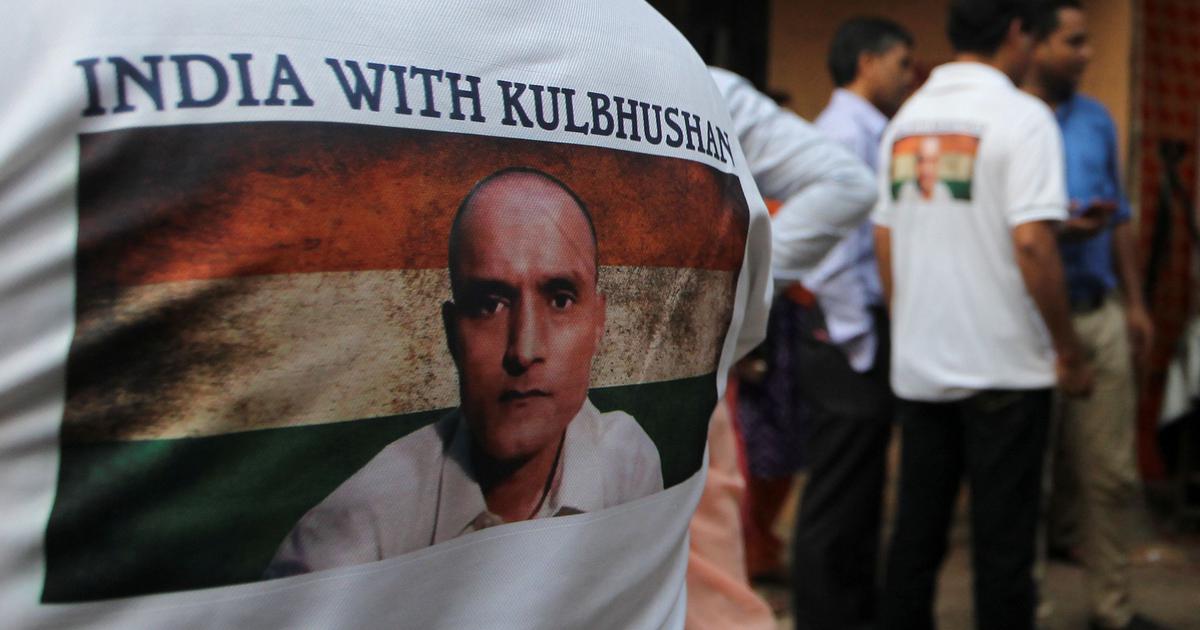The International Court of Justice President told the UN that Pakistan was obliged to fully grant India consular access to the former Indian Navy officer.

International Court of Justice President Judge Abdulqawi Yusuf told the United Nations General Assembly on Wednesday that Pakistan violated its obligations under the Vienna Convention in the case of former Indian Navy officer Kulbhushan Jadhav, PTI reported on Thursday.
Yusuf said that in its judgement on July 17, the International Court of Justice found that Pakistan had violated its obligations, and that appropriate remedies were due in the case.ADVERTISEMENT
Jadhav was sentenced to death in 2016 in Pakistan. His execution was stayed after India moved the international court against the verdict in May 2017.
India contended in The Hague that the lack of consular access was a violation of the Vienna Convention on Consular Relations. Article 36 of the convention mandates that consular officers had the right to visit a national of their country detained or taken into custody on foreign shores “to converse and correspond with him and to arrange for his legal representation”.
Elaborating on aspects of the court’s ruling, Yusuf told the General Assembly that the court had to examine whether the rights relating to consular access, set out in Article 36 of the Vienna Convention, could be excluded when the individual concerned had been convicted of espionage. He told the Assembly that there is no provision in the Vienna Convention for cases related to espionage, and therefore, Pakistan was obliged to grant India consular access to Jadhav in full.
Yusuf said that the court also had to determine what the phrase “without delay” in the notification requirements of Article 36 meant. The judge said the meaning of the phrase depended on the circumstances of the case. In Jadhav’s case, the court noted that Pakistan’s notification three weeks after Jadhav’s arrest constituted a breach of its obligation to inform India’s consular post “without delay”.ADVERTISEMENT
Yusuf also said that a bilateral agreement signed between India and Pakistan in 2008 on the matter of consular access could not exclude the applicability of the Vienna Convention to Jadhav’s case. “In line with its earlier jurisprudence in other cases dealing with breaches of the Vienna Convention, the Court found that the appropriate remedy was effective review and reconsideration of the conviction and sentence of Mr Jadhav,” he added.
Yusuf said that for “effective review and reconsideration” of the conviction and sentence, Pakistan must have the appropriate procedure in place, which means a proper judicial process. The judge said Pakistan replied to the International Court of Justice on August 1, saying it was committed to implementing the judgement in full. Pakistan had stated that Jadhav had been informed of his rights under the Vienna Convention and that the consular post of the High Commission of India in Islamabad had been invited to visit him on August 2, he added.
New Delhi maintains that Kulbhushan Jadhav was working on his private business in Iran when he was kidnapped by Pakistan. In July, the International Court of Justice had concluded that Pakistan had violated the Vienna Convention in its treatment of Jadhav and ordered Islamabad not to execute him for the time being.
